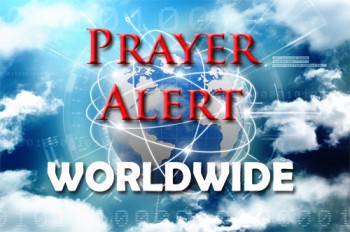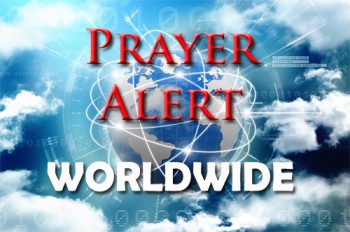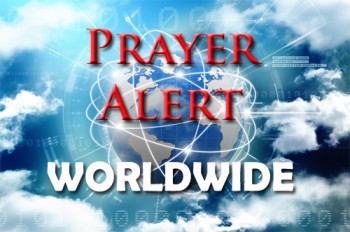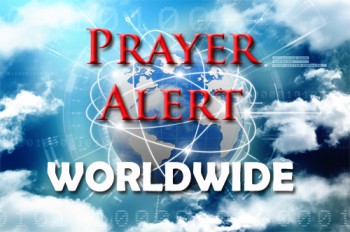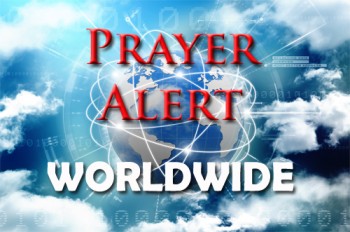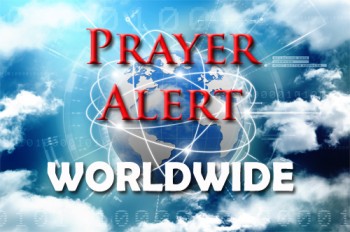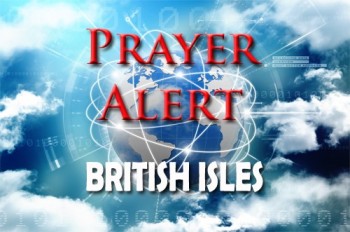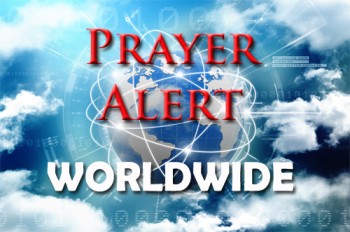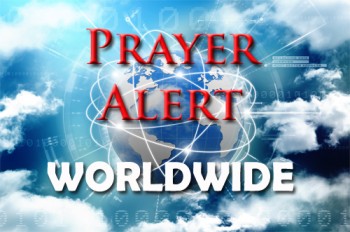Displaying items by tag: Religion
Turkey: deporting foreign Christians
Dozens of foreign Christians in Turkey have been forced to leave the country or been banned from returning, in what appears to be government targeting of the Protestant Christian community. Many, like Carlos Madrigal of Spain, had been serving in Christian leadership roles in Turkey for decades, forming families and buying property. At the airport in November 2019, Carlos was given a stamp in his passport that would keep him from returning to Turkey, so he cancelled his trip and appealed the decision. He was told, ‘We must inform you that since 2019, it has been made increasingly difficult for foreign Protestant clergy serving in Turkey to be resident in our country’. An estimated 35 Christian workers received similar bans in 2019 and 16 more since the end of June. 10,000 Turkish Protestants attend 170 churches, many of them house churches. Turkey ‘officially’ allows freedom of religion, including conversion from Islam.
Kazakhstan: church buildings confiscated
The authorities in Kazakhstan's capital Nur-Sultan ordered the confiscation of the buildings of both Grace Presbyterian Church and Agape Pentecostal Church, which is building a place of worship on the same site. City authorities claim the land is needed for a new kindergarten. But officials refuse to explain why they cannot find another site for this, despite two possibly suitable other buildings being in the same Baikonur District of the capital. The move to confiscate both churches' property was initiated by the Construction and Residential Policy Department. It is unclear if corruption is a factor in the confiscation decision. Local media reported on 17 July that an unnamed former head of the Department is being investigated over the alleged embezzlement of 200 million Tenge (£363,733.80).
Zoom prayer event for children
On Monday 3 August, at 7pm (UK) / 2pm (EDT) / 11am (PDT), intercessors are gathering for an hour to pray for vulnerable children around the world. Participants will hear some updates from Viva Together for Children’s partner networks to inform their prayers and praise, before breaking into small groups to intercede together. May many hundreds gather to plead with one heart and one mind for the situations that desperately require prayers at present, with the coronavirus affecting the whole world in many different ways. Now is the time to gather and pray with one heart and mind. To find out more about Viva and the prayer hour, click on the ‘More’ link.
Muslim-background believers
Since the 1960s, there has been considerable growth of conversions from Islam to Christianity. Most of these conversions have been to forms of evangelical or Pentecostal Christianity, and some converts claim to remain in some way both Muslims and followers of Jesus. Pray for the continued growth of mission agencies taking the good news to those who have not heard it. Muslim-background missionaries are vibrant Christians even though most of them are hated by their home countries and Muslim leaders, and are ostracised, beaten, and murdered by their families and neighbours: see Pray for God to continue to strengthen the endurance of new Christians as they evangelise, preach and demonstrate God’s love into the darkest corners of Islam. Converts from Islam face insurmountable questions on an almost daily basis, such as ‘I have more than one wife, what do I do?’ or ‘How can I support myself now my family has rejected me?’ See
Australia: national day of prayer
The National Council of Churches has called on all Christians across Australia to set aside Sunday 2 August as a day of prayer, worship and optional fasting, as the state of Victoria in particular continues to battle with the pandemic. The council’s president, Bishop Philip Huggins, said in a letter to member churches, ‘We all know the impact of the pandemic here and overseas, including on some of our own loved ones. At our council meeting this week, we directors all shared our vivid and poignant current reflections. What we can offer again now are our prayers together. Hence this encouragement to you all. It is comforting when we know we are all praying together to our Saviour. From our various traditions, there are prayer resources, ancient and contemporary, which we have been offering already.’
Hong Kong: politics and church
At least twelve well-known political opposition figures, veterans, and lawmaker activists have been barred from running in the legislative council elections; the government warned that more hopefuls, including further lawmakers, could still be banned. Hong Kong's pastors are in the spiritual trenches of this growing fight. More than one million Christians are choosing between the ‘blue’ pro-government camp and the ‘yellow’ opposition. Most young churchgoers support the pro-democracy protests. Pray for God to protect and show the pastors His way forward, as they lead the church through the current struggles. Pray for young protesters facing moral dilemmas: ‘As a Christian, violence is wrong, so can I throw bricks? An oppressive government is also wrong, shall I break laws to protest against injustice?’
Coronavirus prayer guide
It can be difficult to know where to start when praying for a crisis as large as coronavirus. So Tearfund have created a simple helpful prayer guide for intercessors to use individually, with a group or with the church. To download this perceptive resource for praying for situations close to home and around the world click the ‘More’ button.
Faith groups’ role in social cohesion undervalued
Faith and non-religious belief groups’ positive contribution to social cohesion deserves greater recognition and should have more influence on cohesion policy in the United Kingdom, according to a report commissioned by the British Academy and the Faith and Belief Forum. The report draws on practical case studies from across the UK, including an interfaith programme by the West London Synagogue to promote positive Jewish-Muslim relations locally, a mosque that teaches English to speakers of other languages, a Catholic homelessness charity, and a Christian initiative to tackle knife crime. Faith is too often thought of as concerning ‘others’ and subtly racialised as the preserve of ethnic minorities in a secular society. Although faith and belief can be a source of division, many faith groups play a key role in uniting groups, and their contributions need to be valued and recognised.
Saudi Arabia: Hajj - 29 to 31 July
The Hajj is one of the five pillars of Islam that all Muslims must perform at least once in their lifetime if they are able. On the Hajj Muslims seek the forgiveness of sins and to deepen their allegiance to Allah. In Luke 7, Jesus said to a sinful woman, ‘Your sins are forgiven: your faith has saved you; go in peace’. Jesus has the authority and power to forgive all of our sins through his atoning sacrifice on the cross and His resurrection. 1.8 billion Muslims in the world today reject Jesus as a Saviour. Instead, they go on the Hajj pilgrimage to Mecca in Saudi Arabia in order to earn forgiveness of sins from Allah. A phrase used in most Arabic conversations is ‘al-ḥamdu li-llāh’ - literally, ‘Praise be to God’. Pray for people to truly know God and praise Him when they use this phrase. See also
Democratic Republic of the Congo: turmoil, violence, pandemic
2019 saw Felix Tshisekedi elected president in disputed elections marred by violence. Ethnic tensions between Lendu and Mema saw 1,000+ deaths and another 1,300+ abducted or kidnapped, while the Ebola crisis took more lives. 2019 is being violently repeated in 2020. On 22 July authorities started cracking down on peaceful critics, journalists, and political party members using pandemic emergency measures as a pretext to curb political protests(see). Since 13 July hundreds have been demonstrating for the dissolution of parliament. This has been organised by the Catholic Church (see). Authorities are attempting to contain several health crises: coronavirus, the largest measles outbreak in the world, and two Ebola epidemics (see). Also rural violence is escalating: a Christian worker writes, ‘The route from Aru to Bunia is still not safe. If people want to reach Bunia they are accompanied by soldiers. But those who were killed last time were accompanied by soldiers who were also killed.’
